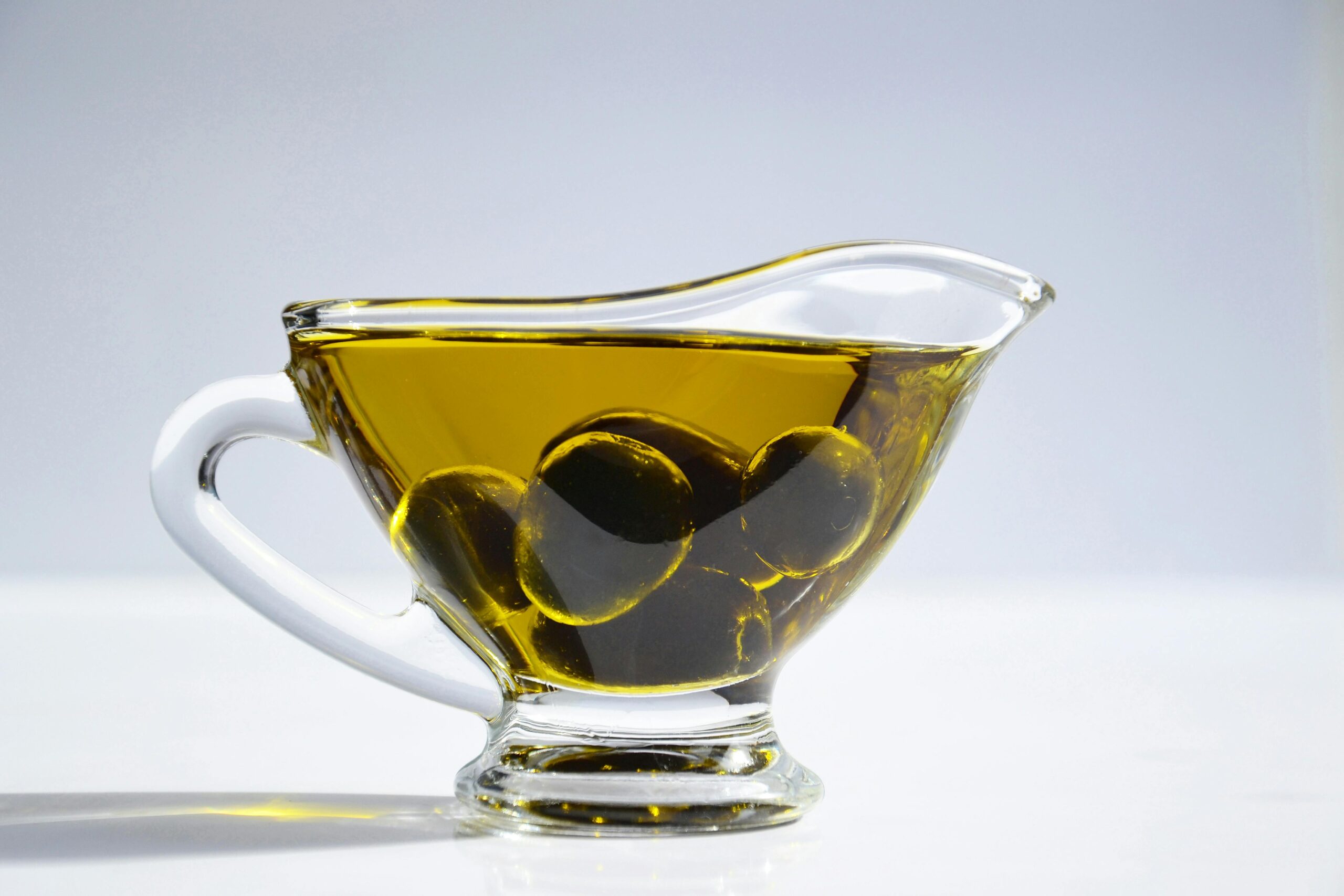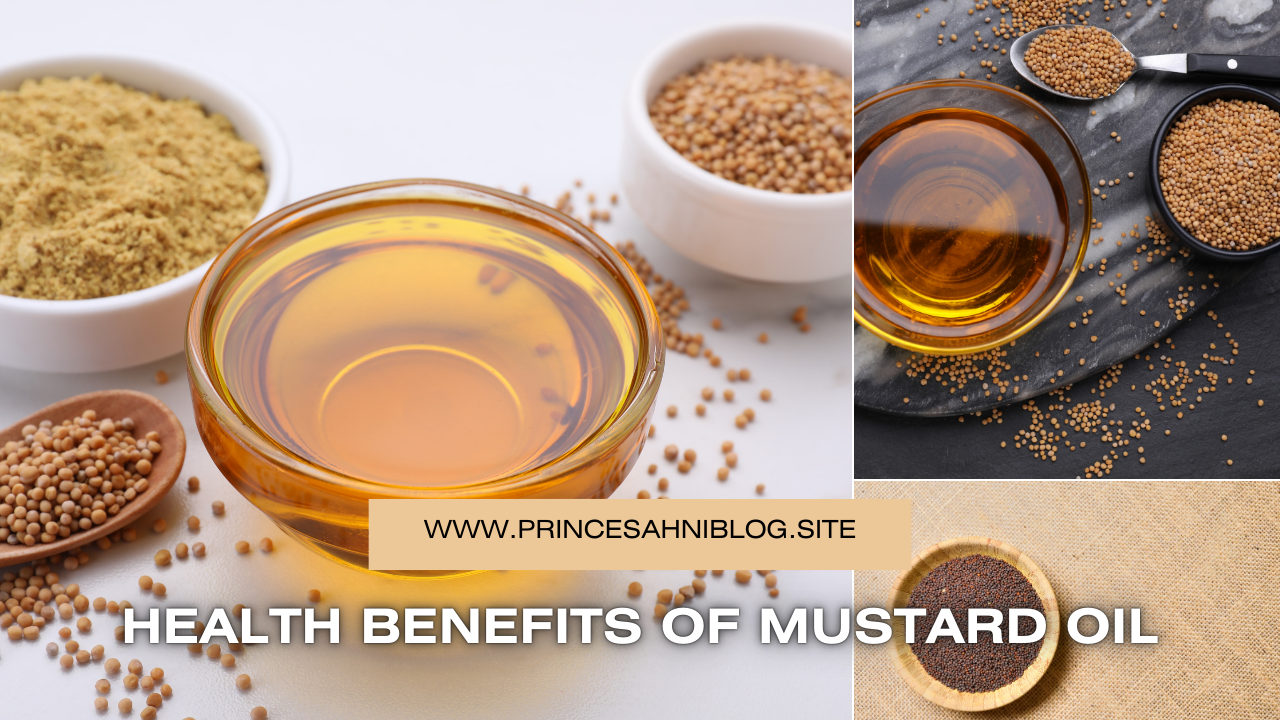1. Introduction: Mustard Oil – A Timeless Elixir

Mustard oil has been a staple in many cultures, particularly in South Asia, for centuries. It is derived from mustard seeds and is widely used in cooking, traditional medicine, and skincare. Known for its pungent aroma and strong flavor, mustard oil has been both celebrated for its health benefits and debated for its safety. This section will introduce the oil, its origins, and its role in different cuisines and traditional healing systems.
Table of Contents
2. Nutritional Composition of Mustard Oil
Mustard oil is packed with beneficial nutrients that contribute to overall health. This section will cover:
- Monounsaturated and polyunsaturated fats (healthy fats that support heart health).
- Omega-3 and omega-6 fatty acids (essential for brain function and inflammation control).
- Vitamin E (a powerful antioxidant beneficial for skin and immune health).
- Allyl isothiocyanate (a compound responsible for its strong flavor and antibacterial properties).
- Erucic acid (a controversial component that will be discussed in later sections).
3. Mustard Oil in Ayurveda and Traditional Medicine
Ayurveda and other traditional healing systems have used mustard oil for various health benefits for centuries. Some traditional uses include:
- Massage therapy – Used in Ayurvedic massages to relieve muscle pain, improve circulation, and detoxify the body.
- Cold and flu remedy – Often used for steam inhalation or chest massage to clear congestion.
- Digestive aid – Believed to stimulate appetite and enhance digestion.
- Joint pain relief – Applied externally to soothe arthritis and joint pain.
This section will explore how these age-old remedies align with modern scientific findings.
4. Heart Health Benefits: Can Mustard Oil Lower Cholesterol?
Scientific studies suggest that mustard oil can be beneficial for heart health due to its high content of monounsaturated (MUFA) and polyunsaturated (PUFA) fatty acids. This section will discuss:
- How mustard oil helps reduce bad cholesterol (LDL) while increasing good cholesterol (HDL).
- Its role in reducing inflammation in blood vessels.
- How it helps regulate blood pressure and prevent heart diseases.
- Scientific studies supporting these claims.
5. Anti-Inflammatory and Pain-Relieving Properties
Mustard oil contains compounds with anti-inflammatory and pain-relieving effects. This section will discuss:
- Allyl isothiocyanate, which helps reduce pain and swelling.
- How mustard oil is used in joint pain relief and arthritis treatment.
- Traditional practices of warming mustard oil with garlic or turmeric to enhance its pain-relieving properties.
- Its potential role in soothing muscle soreness and back pain.
6. Boosting Immunity and Fighting Infections
Mustard oil is known for its strong antimicrobial properties. This section will explore:
- How its antibacterial, antifungal, and antiviral properties help prevent infections.
- How oil pulling with mustard oil can improve oral health and reduce bacterial growth.
- Its role in treating common colds, coughs, and respiratory infections.
- How applying mustard oil on the skin can help prevent bacterial and fungal skin infections.
7. Mustard Oil for Skin and Hair Health

This section will highlight mustard oil’s role in personal care:
- Skin benefits:
- Hydrates dry skin and prevents premature aging.
- Helps in wound healing due to its antibacterial properties.
- Used as a natural sunscreen.
- Hair benefits:
- Promotes hair growth by improving blood circulation to the scalp.
- Prevents dandruff and scalp infections.
- Strengthens hair strands and prevents premature graying.
It will also include DIY mustard oil masks for skin and hair care.
8. Digestive and Metabolic Health: Aiding Weight Loss and Gut Function
Mustard oil stimulates the digestive system, improving metabolism and aiding weight loss. This section will cover:
- How it enhances bile production and improves digestion.
- Its thermogenic effect, which boosts metabolism and fat-burning.
- How it helps prevent constipation and bloating.
- The benefits of mustard oil in reducing gastric infections.
9. Cooking with Mustard Oil: Is It Safe and Healthy?
Mustard oil is a common cooking ingredient in Indian, Bangladeshi, and Pakistani cuisines. This section will discuss:
- The smoke point of mustard oil and its suitability for deep-frying and sautéing.
- How cold-pressed mustard oil retains more nutrients.
- The controversy around mustard oil’s erucic acid content and regulations in some countries.
- How to incorporate mustard oil into a balanced diet safely.
10. Potential Risks and Precautions of Mustard Oil Usage
While mustard oil has many benefits, excessive consumption or improper use can pose risks. This section will discuss:
- The concern over erucic acid and its potential impact on heart health.
- Allergic reactions and skin irritation in some individuals.
- Why mustard oil is banned for edible use in some Western countries but widely consumed in South Asia.
- How to choose safe and high-quality mustard oil for consumption and application.
Conclusion

Mustard oil is a powerhouse of health benefits, deeply rooted in tradition and backed by science. From improving heart health and boosting immunity to enhancing skin and hair care, it serves as a versatile natural remedy. However, while it offers numerous benefits, it is important to consume it in moderation and choose high-quality, cold-pressed variants to maximize its advantages. By understanding its nutritional value and proper usage, you can incorporate mustard oil into your daily routine for a healthier lifestyle or click here to read more blog like this.
FAQs
1. Is mustard oil safe for cooking?
Yes, mustard oil is safe for cooking when used in moderation. It is widely used in Indian, Bangladeshi, and Pakistani cuisines. However, some Western countries have restrictions due to its erucic acid content. Opt for cold-pressed mustard oil for the best health benefits.
2. Can mustard oil help with hair growth?
Yes, mustard oil is rich in omega-3 fatty acids and antioxidants, which promote hair growth, strengthen hair strands, and prevent dandruff. Regular scalp massages with mustard oil can improve blood circulation and nourish hair follicles.
3. Does mustard oil help with joint pain?
Yes, mustard oil has anti-inflammatory properties that help reduce joint pain and muscle soreness. It is commonly used in massages, especially when mixed with garlic or turmeric for enhanced pain relief.
4. Is mustard oil good for heart health?
Mustard oil contains healthy monounsaturated and polyunsaturated fats, which help lower bad cholesterol (LDL) and improve heart health. However, excessive consumption should be avoided due to the presence of erucic acid.
5. Can mustard oil be applied directly to the skin?
Yes, mustard oil can be applied to the skin for hydration and protection. However, it should be used in small amounts, as some people may experience irritation or allergies. A patch test is recommended before use.

